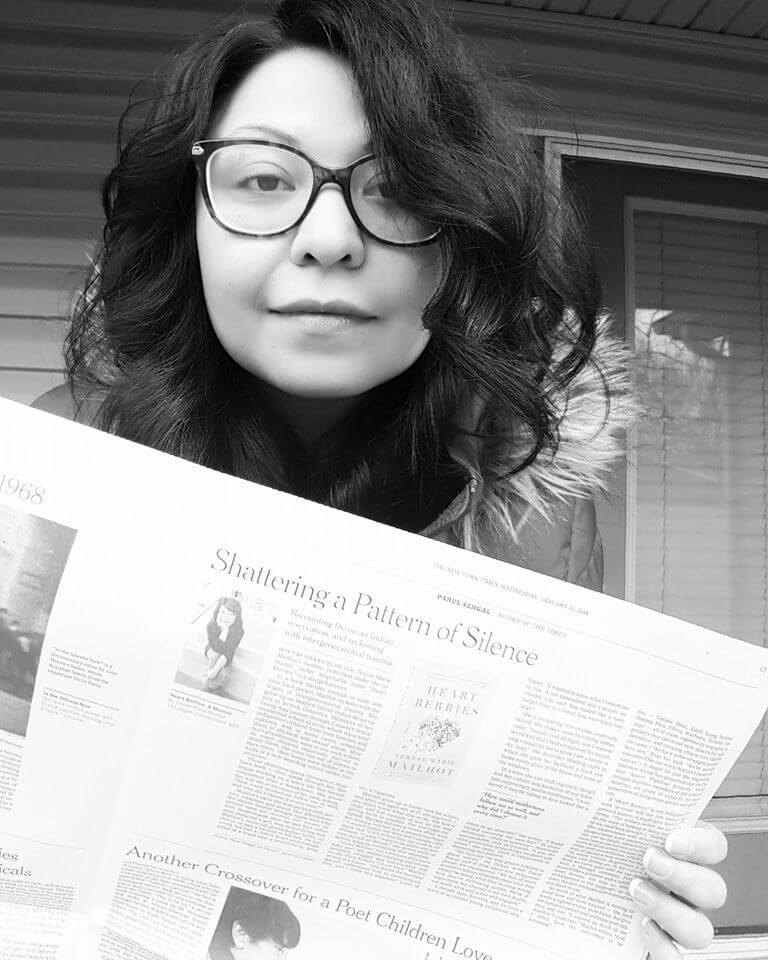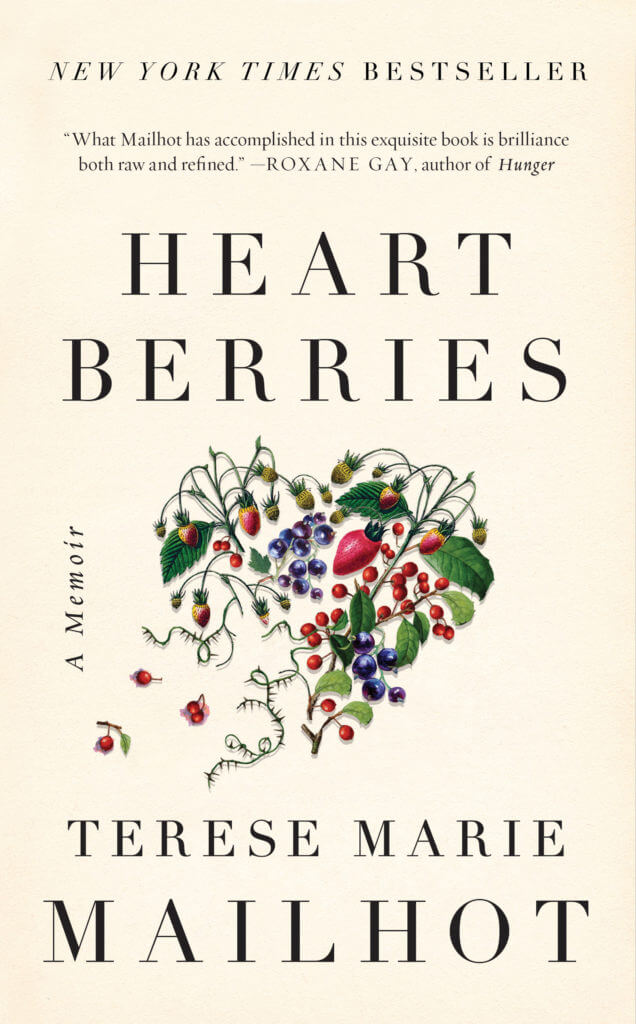Interview: Terese Mailhot
 Midwestern Gothic staffer Laura Dzubay talked with author Terese Mailhot about her novel Heart Berries, willful blindness, knowing when you’ve hit your voice, and more.
Midwestern Gothic staffer Laura Dzubay talked with author Terese Mailhot about her novel Heart Berries, willful blindness, knowing when you’ve hit your voice, and more.
**
Laura Dzubay: What’s your connection to the Midwest?
Terese Mailhot: I fell in love with my husband, and he’s from Evansville, IN. He played football in that small town, his parents still live there, so I wanted to work close to them. That’s why I applied to the Tecumseh Postdoc at Purdue. I got it, and we rolled out of our little adobe house in New Mexico. We love it here.
LD: In terms of setting, Heart Berries is focused primarily on the Seabird Island Indian Reservation in British Columbia. How do considerations of place factor into your writing process? Are there some settings from your life that would feel more natural than others in the context of a memoir such as this?
TM: We call it Seabird Island Rez where I’m from. I just love the ring of that. I loved my rez and the life on it. The vibrancy of that place still thrills me, and I long for the old house I grew up in. That house burned down. My own uncle said it was cool to tear up the land, where my grandmother planted and cultivated so much beauty. So, I lament. I miss that place, and can never really go home again. For Heart Berries it was necessary to explore the meaning of home, and, for me, your home is about the land. The story of the land, and then how your family came to be, and how they cultivated that space for themselves.

LD: In an interview with The Atlantic, you talked about “willful blindness” as a technique for resisting the rules and preconceptions of things you’re “supposed” to do. After thinking about this during the composition of Heart Berries, do you see it coming up as a regular function of your writing moving into the future?
TM: No. I think each book requires something. Heart Berries needed me to put the blindfold on and now I feel the compulsion to take it off. I’m not afraid to explore working outside of the rules that service good story. I want to take my time, and I used to feel urgency. I used to feel anger, and now I feel more. Also, the center and focus of my work has broadened. The content is different now, and it’s going to take, literally, more words to express how healing has worked for me. It’s a good kind of problem that’s asking me to write differently. Eyes open.
LD: As a memoir, this book has already been recognized for its fearless approach of difficult and traumatic subjects. When did you decide that this was a story you needed to tell?
TM: I think when I found myself consumed with the death of my father. I was always trying to express how his death felt. It took me a long time, but I was able to write that line, “My father died at the Thunderbird Hotel on Flood Hope Road.” Then it was on. It was all on, and I just wrote without relenting after that.
LD: Heart Berries is relatively short overall, but it’s also packed with emotion, creativity, and originality. How did your relationship with the idea of convention change during this project?
TM: I wanted to write a full book. I wanted to please everyone who believed in me, but I couldn’t. I just was writing and couldn’t worry about pleasing them, because what I was writing was worthwhile. I think you know when you’ve hit your voice. You know when you’re almost playing the music in your head, and you have to honor that voice. I knew I had to honor it, and revise according to that honor.
LD: Do you believe writer’s block exists, and if so, how do you deal with it?
TM: Yes. Writer’s block is part of my process. Some days I can’t write. As long as I make a note on my phone, or in my notebook, I’m okay. I also read when I can’t write, so that helps.
LD: How can you tell when a piece of writing is finished?
TM: It feels finished. You have to give it time, because sometimes it feels finished for now, and then you wait a few months, or a year, and you can go back and see if you’re right. That’s kind of how I work.
LD: What’s next for you?
TM: Book two. Sharing my success. Going back to my hometown when I get my first real check, and playing the slots with my brother. That’s the dream. My life is dreamy.
**
Terese Mailhot is from Seabird Island Band. She graduated with an MFA from the Institute of American Indian Arts. Her writing appears in West Branch, Guernica, Pacific Standard, Elle, The LA Times, Longreads, Medium, and elsewhere. She is the author of the New York Times bestselling Heart Berries: A Memoir. She serves as faculty at the Institute of American Indian Arts and she’s a Tecumseh Postdoctoral Fellow at Purdue University.






